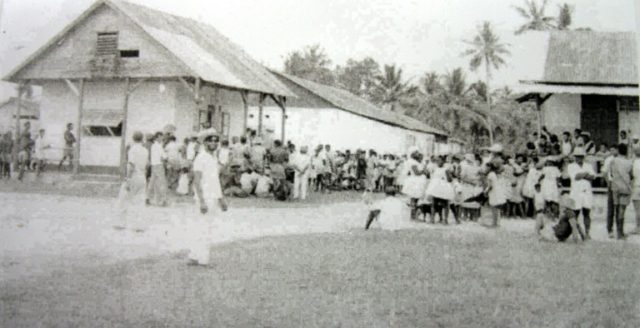The Hague (AFP) – International judges will hear arguments Monday to examine the fate of the British-ruled Chagos Islands, home to a strategic joint US military base — now claimed by Mauritius.
In a diplomatic blow to Britain last year, the United Nations adopted a resolution presented by Mauritius and backed by African countries, asking the International Court of Justice to offer an advisory opinion on the island chain’s fate.
For four days next week, the Hague-based ICJ will listen to arguments presented by 22 countries including Mauritius and Britain. The African Union is also expected give an opinion.
The ICJ will then give a final opinion on the matter, but its ruling is not binding on the parties.
– ‘Unlawfully dismembered’ –
Discussions will centre around the consequences of Britain’s separation of the archipelago from Mauritius in 1965.
Mauritius declared independence in 1968 and argues that it was illegal for London to break up its territory while still under colonial rule.
As the Cold War with the former Soviet Union intensified, Britain established a combined military base with the US on Diego Garcia, the largest of the islands.
Mauritius said London “unlawfully dismembered” its territory by declaring the Chagos Island group a “British Indian Ocean Territory”, thereby reducing Mauritius in size.
Britain in the early 1970s also resettled the archipelago’s residents — some 2,000 in total — on Mauritius and the Seychelles to make way for the base.
Set up in 1946, the ICJ rules in disputes between countries, but it can also give non-binding advisory opinions to UN bodies such as the General Assembly.
UN Secretary General Antonio Guterres last year asked the ICJ’s 15 judges to rule on whether the “process of decolonisation of Mauritius was lawfully completed” after Chagos was split off.
Guterres also asked the court to rule on the consequences of Britain’s continued administration of the islands, including Mauritius’ inability to send home Chagossians who were evicted.
– ‘Robust defence’ –
Guterres’ request came after the UN General Assembly held a June vote on whether to refer the matter to the ICJ, which passed by 95-15. There were 65 abstentions — mostly by European member states including Italy, France and Spain.
The vote was seen as a test of Britain’s ability to rally support at the UN from fellow Europeans a year after its shock vote to leave the European Union.
“It looks like a complete haemorrhaging of EU support,” said Mauritius’s lead lawyer, Philippe Sands.
“Perhaps if this had come up a few years earlier, pre-Brexit, the situation may have been different,” he told AFP.
London, however, said it would “robustly defend” its position, indicating that the referral to the ICJ would hurt its relations with Port Louis.
“This was inappropriate and not the sort of action taken by friends, not least fellow members of the Commonwealth,” a Foreign Office official told AFP.
While Britain does not recognise Mauritius’s claim over Chagos, “we have repeatedly undertaken to cede it to Mauritius when no longer required for defence purposes,” the official said.
– Key strategic base –
Britain in 2016 ruled out resettling Chagos’s former inhabitants, who now number about 10,000 including their descendants.
Diego Garcia, the best-known island of the remote chain, has played a key strategic role in US military operations.
In the 1970s, it offered proximity to Asia during the fall of Saigon and the Khmer Rouge takeover in Cambodia, and as the Soviet navy extended its influence in the Indian Ocean.
In recent years it has served as a staging ground for US bombing campaigns in Afghanistan and Iraq.
Mauritius, however, says that it wants to “eliminate colonialism”.
“Mauritius’ independence will be incomplete as long as the Chagos Islands are not returned,” said Prime Minister Pravind Jugnauth.
However, he did acknowledge that Mauritius “recognises the existence of the base and accepts its continued and future functioning in accordance with international law.”

COMMENTS
Please let us know if you're having issues with commenting.